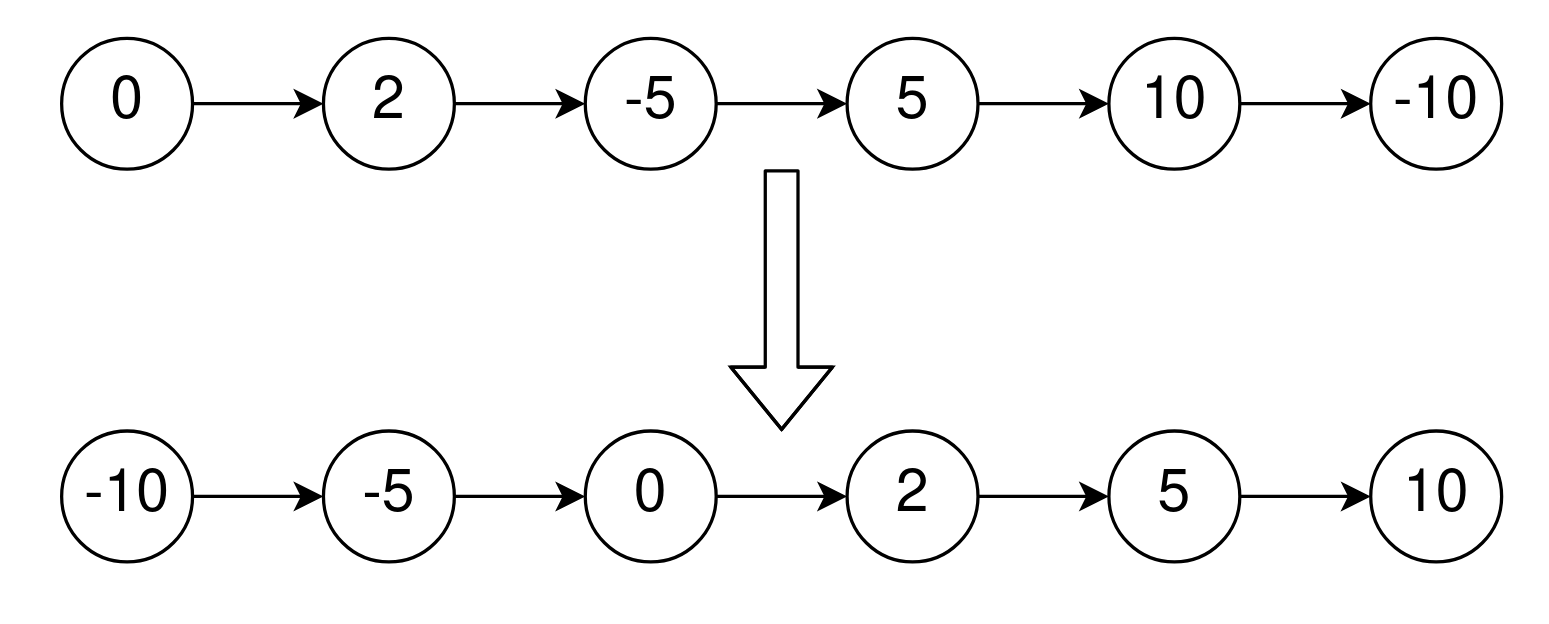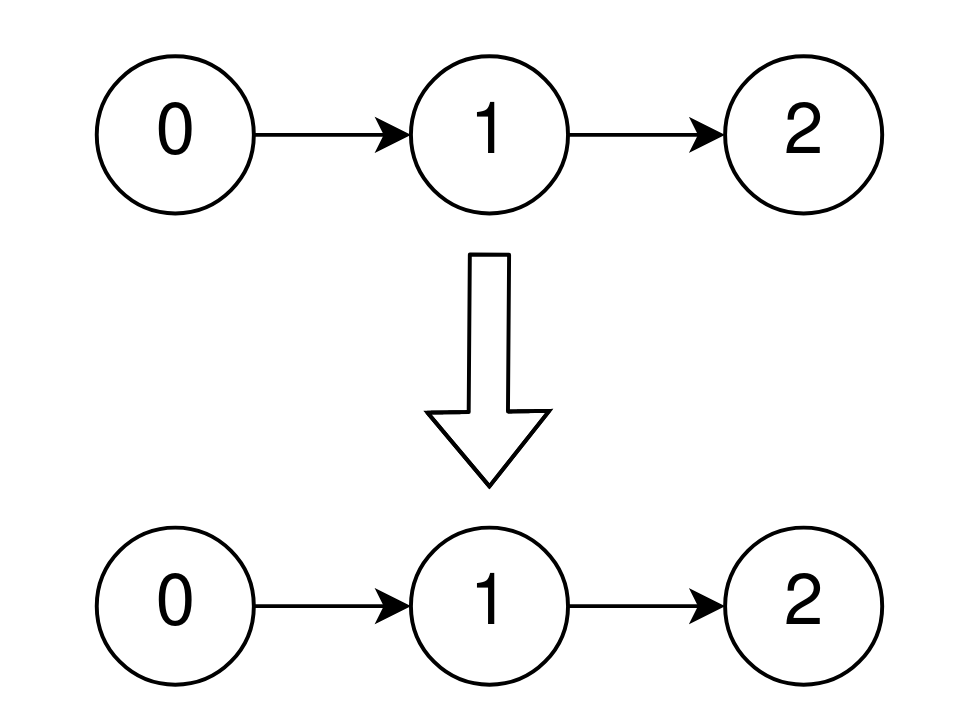Given the head of a singly linked list that is sorted in non-decreasing order using the absolute values of its nodes, return the list sorted in non-decreasing order using the actual values of its nodes.
Example 1:
Input: head = [0,2,-5,5,10,-10] Output: [-10,-5,0,2,5,10] Explanation: The list sorted in non-descending order using the absolute values of the nodes is [0,2,-5,5,10,-10]. The list sorted in non-descending order using the actual values is [-10,-5,0,2,5,10].
Example 2:
Input: head = [0,1,2] Output: [0,1,2] Explanation: The linked list is already sorted in non-decreasing order.
Example 3:
Input: head = [1] Output: [1] Explanation: The linked list is already sorted in non-decreasing order.
Constraints:
- The number of nodes in the list is the range
[1, 105]. -5000 <= Node.val <= 5000headis sorted in non-decreasing order using the absolute value of its nodes.
Follow up:
- Can you think of a solution with
O(n)time complexity?
先默认第一个点已经排序完毕。然后从第二个点开始,遇到值为负数的节点,采用头插法;非负数,则继续往下遍历即可。
# Definition for singly-linked list.
# class ListNode:
# def __init__(self, val=0, next=None):
# self.val = val
# self.next = next
class Solution:
def sortLinkedList(self, head: Optional[ListNode]) -> Optional[ListNode]:
prev, curr = head, head.next
while curr:
if curr.val < 0:
t = curr.next
prev.next = t
curr.next = head
head = curr
curr = t
else:
prev, curr = curr, curr.next
return head/**
* Definition for singly-linked list.
* public class ListNode {
* int val;
* ListNode next;
* ListNode() {}
* ListNode(int val) { this.val = val; }
* ListNode(int val, ListNode next) { this.val = val; this.next = next; }
* }
*/
class Solution {
public ListNode sortLinkedList(ListNode head) {
ListNode prev = head, curr = head.next;
while (curr != null) {
if (curr.val < 0) {
ListNode t = curr.next;
prev.next = t;
curr.next = head;
head = curr;
curr = t;
} else {
prev = curr;
curr = curr.next;
}
}
return head;
}
}/**
* Definition for singly-linked list.
* struct ListNode {
* int val;
* ListNode *next;
* ListNode() : val(0), next(nullptr) {}
* ListNode(int x) : val(x), next(nullptr) {}
* ListNode(int x, ListNode *next) : val(x), next(next) {}
* };
*/
class Solution {
public:
ListNode* sortLinkedList(ListNode* head) {
ListNode* prev = head;
ListNode* curr = head->next;
while (curr)
{
if (curr->val < 0)
{
auto t = curr->next;
prev->next = t;
curr->next = head;
head = curr;
curr = t;
}
else
{
prev = curr;
curr = curr->next;
}
}
return head;
}
};/**
* Definition for singly-linked list.
* type ListNode struct {
* Val int
* Next *ListNode
* }
*/
func sortLinkedList(head *ListNode) *ListNode {
prev, curr := head, head.Next
for curr != nil {
if curr.Val < 0 {
t := curr.Next
prev.Next = t
curr.Next = head
head = curr
curr = t
} else {
prev, curr = curr, curr.Next
}
}
return head
}

